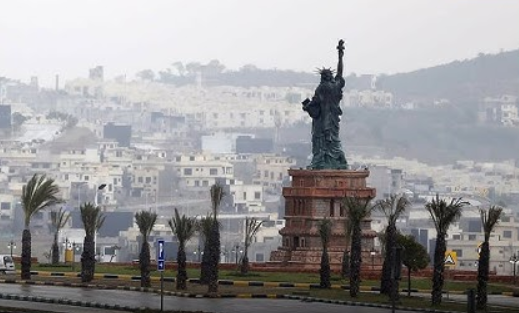Once a real estate empire that operated with near-complete impunity, Bahria Town now finds itself at the mercy of the very state it once appeared to command. Facing the imminent auction of its assets over unpaid debts, the embattled property giant has issued a desperate public appeal for negotiations — and, perhaps, a final lifeline.
In an unusually conciliatory statement released Tuesday, Bahria Town’s chairman called for a “serious dialogue” with the government and offered full compliance with any arbitration process. “We will abide by whatever decision is made, including any financial penalties,” the statement said — though not without first touting the company’s contributions to Pakistan’s economy and lamenting the dire circumstances now engulfing it.
This rare display of humility marks a dramatic fall for a company that for years symbolized unchecked power in Pakistan’s real estate sector. While the chairman’s overture strikes a tone of cooperation, many view it as too little, too late.
A Legacy of Controversy and Expansion at All Costs
Bahria Town’s history is littered with controversy. Over the years, it has been accused of bulldozing its way through regulations, displacing citizens, and expanding its projects with political backing and bureaucratic indulgence. Investigations into its flagship Karachi development, Bahria Town Karachi (BTK), unearthed a pattern of aggressive land acquisition and questionable legal maneuvering — a model of operation that left many ordinary citizens disenfranchised.
Even Pakistan’s Supreme Court, during its probe into the BTK project, appeared to struggle in holding the developer accountable amid rampant corruption and state-level complicity. A settlement was eventually reached in 2019, requiring Bahria Town to pay the state a staggering Rs460 billion over several years. However, the developer began defaulting on these payments almost immediately, raising questions about enforcement — and about the state’s willingness to truly rein in the juggernaut.
No More Leeway — State Moves to Collect
Today, that leniency appears to have run out. Authorities have signaled a clear intent to pursue every available legal path to recover what is owed. Bahria Town assets are already being seized, and the threat of auctions looms large. The developer, once viewed as untouchable, is now cornered.
Adding to the intrigue is the shadow of the Al-Qadir Trust case — a scandal that links £190 million in assets seized by the UK’s National Crime Agency from Malik Riaz, Bahria Town’s founder, to former prime minister Imran Khan. The funds were repatriated to Pakistan, but rather than being independently utilized by the state, they were allegedly adjusted against Bahria Town’s Supreme Court dues. Critics argue this benefited the developer unfairly.
Bahria Town’s leadership has previously claimed the current pressure campaign is political retaliation for refusing to support the government’s narrative in the Al-Qadir case. Whether that claim holds weight or not, the company’s legal troubles have only escalated since.
The Path Forward: Justice or Another Deal?
As Bahria Town seeks yet another chance to make good on old promises, many are watching closely to see if the government will apply the same standards of accountability it demands from others. Should the current administration cut any behind-the-scenes deal with Malik Riaz in exchange for cooperation — the very move it accuses Imran Khan’s government of — it would risk being guilty of the same corruption.
For now, Bahria Town’s fate hinges on whether the state holds the line. The rule of law demands that the developer be treated like any other defaulter: no special favors, no hidden bargains — just justice, delivered in full view of the public.


